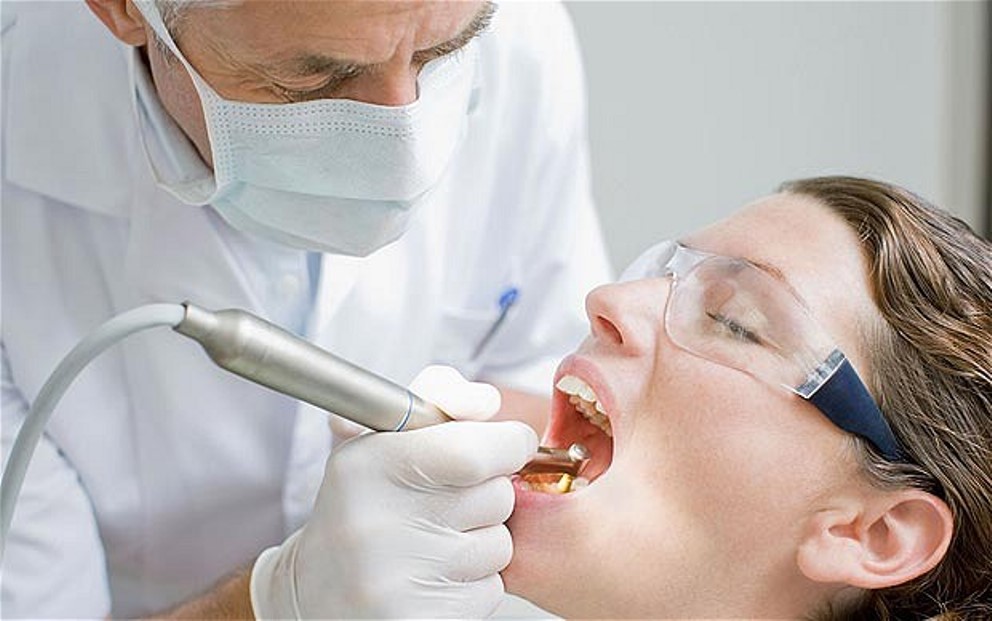 HYGIENIST COURSE ADMISSION
HYGIENIST COURSE ADMISSION The Dental Hygienist course is a 2 years diploma course run under the aegis of Dental Council of India which was constituted on 12th April 1949 under an Act of Parliament - the Dentists Act, 1948 (XVI of 1948). The Dental Council of India runs under the aegis of Department of Health, Ministry of Health & Family Welfare, Government of India, New Delhi.
The definition of a dental hygienist as per Dental council of India is “Dental Hygienist means a person, not a Dentist or a Medical Practitioner, who scales, cleans or polishes teeth, or gives instruction in dental hygiene. He shall work under the supervision of the Registered Dental Surgeon”.
A dental hygienist assist dentist in performing routine oral maintenance tasks and educating patients about dental health. Dental hygienist course is taken as part of a full undergraduate or graduate degree program.
Dental hygienist course is aimed to facilitate students to understand and gain knowledge of working as a chair side assistant in dental clinics. Who does oral prophylaxis, give instruction in oral hygiene and preventive dentistry but has to work under supervision of a Dental Surgeon. Dental hygienist course is a full time diploma course of two years duration.
Eligibility:
The candidate interested in doing dental hygienist course should have passed the higher secondary school examination or its equivalent (12 years schooling certificate) with not less than 50 per cent marks in English, Physics, Chemistry and Biology taken together or any other equivalent examination of any other country duly recognized. It is necessary to pass in each head i.e. theory, practical and oral of each subject and the examination as a whole in one and same attempt.
The selection of the candidates for doing dental hygienist course is done through entrance test.
Admission Procedure:
The admission process for dental hygienist course starts in the month of May. Just after the 12 class results are declared. Generally, last date for dental hygienist admission is end of July, but normally very few colleges run dental hygienist course and the maximum number of seats approved by DCI is 20 or less.
Candidates interested in taking admission in dental hygienist course should act fast, so as to get admission in a good dental college. Normally the session commences from first week of August.
Useful Information:
An associate's degree is normally what aspiring dental hygienists earn; however, some pursue a bachelor's or master's degree if they want to teach dental hygiene, work in management or do research. Programs at both the undergraduate and graduate levels typically incorporate a practicum, such as supervised clinical practice for undergraduate programs or student teaching for a master's program. Upon completion of an undergraduate dental hygiene program, students should be qualified to apply for state licence. Graduate students normally possess licence already and are studying for career advancement.
Undergraduate dental hygiene programs include introductory coursework that teaches students about the equipment they will use and the procedures they will perform as dental hygienists. Hands-on practice will teach students to clean teeth, apply substances like fluoride and provide patients with instruction on oral hygiene.
Students in bachelor's and master's programs in dental hygiene normally take additional courses on practice management, statistics and dental research. Master's programs may have concentration coursework in a field like education or public health.
Dental Hygienist Course and Syllabus
The definition of a dental hygienist as per Dental council of India is “Dental Hygienist means a person, not a Dentist or a Medical Practitioner, who scales, cleans or polishes teeth, or gives instruction in dental hygiene. He shall work under the supervision of the Registered Dental Surgeon”.
A dental hygienist assist dentist in performing routine oral maintenance tasks and educating patients about dental health. Dental hygienist course is taken as part of a full undergraduate or graduate degree program.
Dental hygienist course is aimed to facilitate students to understand and gain knowledge of working as a chair side assistant in dental clinics. Who does oral prophylaxis, give instruction in oral hygiene and preventive dentistry but has to work under supervision of a Dental Surgeon. Dental hygienist course is a full time diploma course of two years duration.
Eligibility:
The candidate interested in doing dental hygienist course should have passed the higher secondary school examination or its equivalent (12 years schooling certificate) with not less than 50 per cent marks in English, Physics, Chemistry and Biology taken together or any other equivalent examination of any other country duly recognized. It is necessary to pass in each head i.e. theory, practical and oral of each subject and the examination as a whole in one and same attempt.
The selection of the candidates for doing dental hygienist course is done through entrance test.
Admission Procedure:
The admission process for dental hygienist course starts in the month of May. Just after the 12 class results are declared. Generally, last date for dental hygienist admission is end of July, but normally very few colleges run dental hygienist course and the maximum number of seats approved by DCI is 20 or less.
Candidates interested in taking admission in dental hygienist course should act fast, so as to get admission in a good dental college. Normally the session commences from first week of August.
Useful Information:
An associate's degree is normally what aspiring dental hygienists earn; however, some pursue a bachelor's or master's degree if they want to teach dental hygiene, work in management or do research. Programs at both the undergraduate and graduate levels typically incorporate a practicum, such as supervised clinical practice for undergraduate programs or student teaching for a master's program. Upon completion of an undergraduate dental hygiene program, students should be qualified to apply for state licence. Graduate students normally possess licence already and are studying for career advancement.
Undergraduate dental hygiene programs include introductory coursework that teaches students about the equipment they will use and the procedures they will perform as dental hygienists. Hands-on practice will teach students to clean teeth, apply substances like fluoride and provide patients with instruction on oral hygiene.
Students in bachelor's and master's programs in dental hygiene normally take additional courses on practice management, statistics and dental research. Master's programs may have concentration coursework in a field like education or public health.
Dental Hygienist Course and Syllabus
 RSS Feed
RSS Feed



